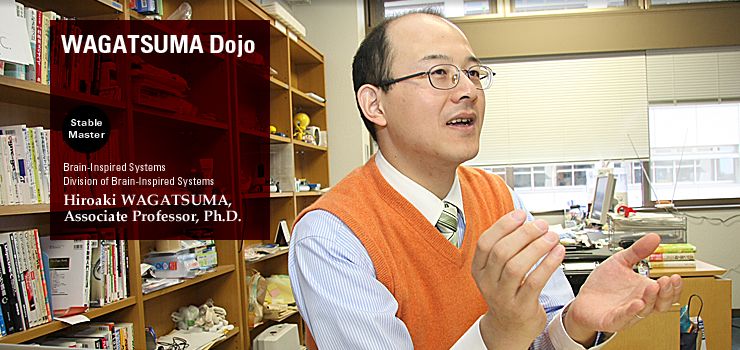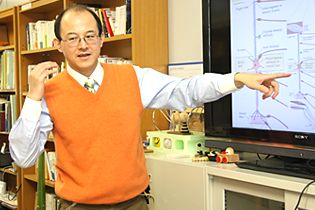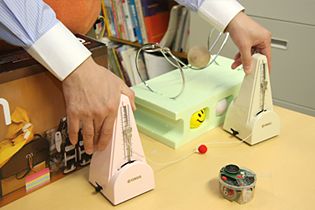 |
| |
 |
| Biological
intelligence flexibly adapts to its ever-changing environment
and widely displays complex cognitive behaviors by creating
proper and internal informational expressions. The brain
is a dynamic organization that can be considered as
a community consisting of various autonomous and independent
elements. In this laboratory, we have been developing
"real-time brain-based robots" by focusing on three
research strategies: the neuro-anatomical (morphological)
level, functional-module level, and simple-dynamics
level. We believe that we can improve our understanding
of intelligence that is emerging from the brain, in
the viewpoint of creation of biological information,
and we can build a real-time system that dynamically
interacts with its environment, as a synthetic approach
on the "Brain-Inspired Systems" concept. |
 |
|
 |
| In
the first step, you will learn about the principal anatomy
and physiological features of the animal brain. You
will then study practical methods to simulate the brain
functions and re-construct them into mathematical models
for the implementation into robots. It might seem a
roundabout approach for students who are good at computer
programming to use differential equations or nonlinear
dynamics for describing neural circuits, but it will
provide you with an unexpected and amazing opportunity
to understand your own brain system. I believe you will
join this program and try your hand at it. It will lead
you to a wider engineering field and broaden your career
prospects. I hope this Degeiko program offers you opportunities
to think about many things such as "What is intelligence?"
or "What is happening to my brain when I am worried?" |
 |
|
|
|
|